My story could never have been written (indeed my life could not have been lived in the manner in which it has) without embarking on a healing journey first. I will be forever grateful to Rachel Harrer, Brookes Cowan, Melita DeBellis, and Tyler Gould for lending me a hand along the way, and for helping me to live the life I have chosen.
And last but not least, I will be forever grateful to Smith College and its many excellent professors for providing me with a Bildungan educationthat not only developed my knowledge, but also helped build my character. A special thanks goes to Ellie Rothman for establishing the Ada Comstock Scholars Program, which provided me with the sense of being in the right place, doing the right thing, at the right time.
Datt's Struggle with Life
We are linked by blood, and blood is memory without language.
JOYCE CAROL OATES
There are two ways to leave the Amishone is through life and the other through death. To leave through life, someone has to deliberately walk away from the security and conformity of the strictly ordered community. Once abandoned, the future is self-determined, exhilarating, and terrifyingly open. Anyone who lives the life determined by the community leaves solely through death.
My father (Datt) once tried doing it through life. He left the community, but like the prodigal son, he returned, and was forever remorseful and shamed for leaving the fold. There is a whole decade of his life I know very little aboutonly that he had left the Amish, joined the military during World War II, was honorably discharged shortly thereafter, and that he worked on the Baltimore and Ohio Railroad for some years. It seemed like he had tried to erase the experiences from this period of his life from his otherwise sharp memory by not talking about them at all. Asking him questions about this era was strictly forbidden. Now, in 2004, Datt was about to take his final leave of the Amishthis time through death.
My sister Susan had let me know that Datt had gone into the hospital with a collapsed lung. He had been fighting for every breath for the last three years with a chronic disease called Farmer's Lung, which was caused by being around moldy hay most of his life. There was no treatment for his stage of the illness. The health professionals had sent him home from the hospitalafter determining that there was nothing they could do to help him. I thought about traveling back to Ohio, but the timing of his illness made this a difficult decision. I had been craving more education ever since I was thirteen and had to leave school because it was the Amish way. After I left the Amish, I got married and had children. I decided to wait until our two sons were grown to follow my dreams. My time had finally come when I was accepted into the Ada Comstock Program at Smith College, designed for women who had not finished college at the traditional age. My first few weeks at Smith were even better than I had imagined. My classesbeginning German, Scandinavian mythology, astronomy, and ethicsprovided just the right mix to challenge and expand my thinking. If ever I was in the right place doing the right thing at the right time, this was it.
The moon lit up the autumn night as I drove through the mountains on my way to Smith College from my home in Vermont. I was talking to Datt as if he could hear me, although he was 550 miles away. Datt, I hope you can go in peace, when it's your time to go. You've had a life filled with sorrow, so I hope you will find peace in dying and in the life beyond. I wiped the tears from my cheeks as I rounded the bend. Awestruck, I saw the moon suspended above the break in the trees, perfectly centered between two mountains where Route 103 cuts through the valley. It lit up the little town of Ludlow in the valley below. The symmetry and the beauty of the moment seemed to me a visual affirmation of my prayer. As if the moon was lighting my way, I realized that I needed to let Datt know my thoughts. I would write to him as a way of saying farewell.
When I arrived at 54 Green Street in Northampton, I carried my clean laundry and backpack of homework to my room, made my bed with fresh sheets, hung up my clothes, and then sat down at my desk and typed a letter to Datt. The words spilled out onto the page without effort as my tears dripped onto the keyboard.
September 19, 2004
Dear Datt,
I heard that you have been in the hospital and that you are now at home. I think it's great that you can be at home with Mem right now.
I think of you many times a day, and I find myself talking to you, as if you could hear me. I decided to let you know by letter, so that you really can hear me, as read to you by Mem.
I hope you can forgive me for the grief I caused you as I was growing up. I know I wasn't the easiest child to raise. I am also sorry for the guilt that you and Mem have shouldered all these years for the choices that I, as your grown daughter, made in leaving the Amish. I made the best choice for me, and I don't feel you and Mem should feel guilty for that. I am sorry that you have been made to feel that way, for that is a burden you and Mem shouldn't have to carry. I hope you have put that burden down, for I can (and should) own all the benefits and consequences for my decision. You have had more than your share of sorrows, without having that heaped on you, too.

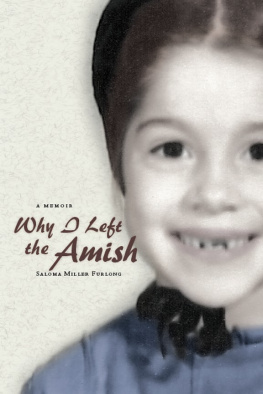
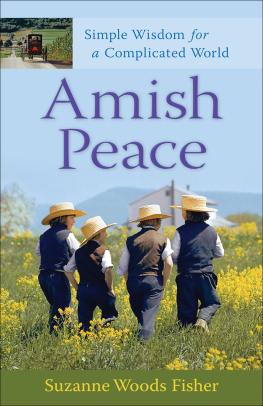
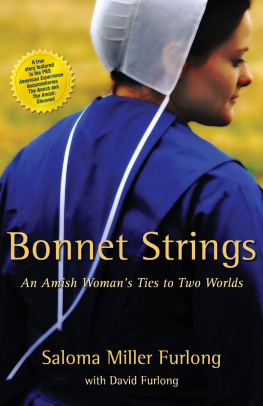
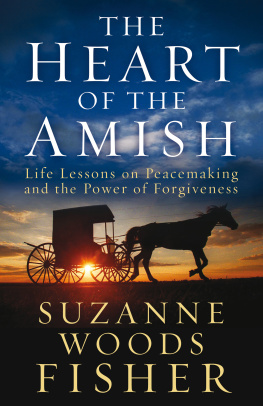


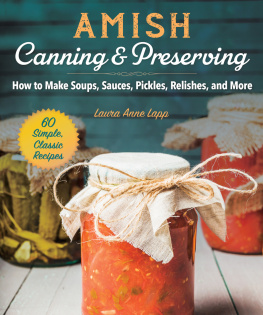
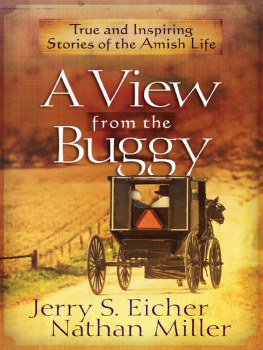
![Beverly M Lewis] - The Beverly Lewis Amish Heritage Cookbook](/uploads/posts/book/96304/thumbs/beverly-m-lewis-the-beverly-lewis-amish-heritage.jpg)


 The paper used in this publication meets the minimum requirements of ANSI/NISO Z39.48-1992 (R 1997) (Permanence of Paper).
The paper used in this publication meets the minimum requirements of ANSI/NISO Z39.48-1992 (R 1997) (Permanence of Paper).
